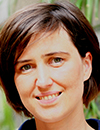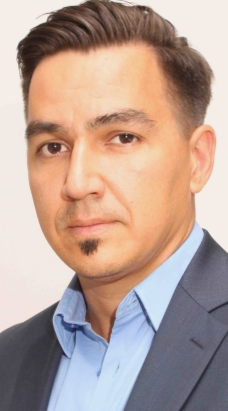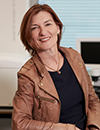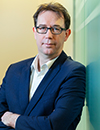Peter ErtlProfessor of Lab-on-a-Chip Systems, Vienna University of Technology Prof. Ertl holds an engineering degree in Biotechnology (University of Life Sciences, BOKU, Austria), a PhD in Chemistry (University of Waterloo, UW, Canada) and received his postdoctoral training as a biophysicist at University of California at Berkeley (UCB, US). Following a position as Director of Product Development at a UW spin-off venture (Canada), Dr. Ertl joint the Biosensor Technology unit at the Austrian Institute of Technology (AIT). During his tenure at the AIT, Dr. Ertl was also granted a Fulbright Visiting Scholarship at UC Berkeley (2012) and conducted visiting scientist positions at Nanyang Technological University, Singapore (2013), the Medical Center of the University of California at San Francisco (2014). In 2016 he was appointed Professor of Lab-on-a-Chip Systems for Bioscience Technologies at the Vienna University of Technology (TUW), where his research focuses on the development of advanced in vitro diagnostic microsystems and organ-on-a-chip systems. Additionally, Dr Ertl held a visiting research appointment at Imperial College London (UK) in 2019 , is speaker of the Austrian Microfluidics Initiative (AMI) and editor of the open access journal Organs-on-a-Chip (Elsevier). |
Yan Yan Shery HuangProfessor of BioEngineering, University of Cambridge Dr. Huang is Professor of BioEngineering, University of Cambridge. She completed her MEng degree in Materials Science and Engineering from Imperial College London in 2007. She then pursued a PhD in Physics at Cambridge. She was a visiting researcher at University of Texas at Austin (2008), and an Oppenheimer Fellow and a Homerton College Junior Research Fellow (2011-2013). She is a recipient of the prestigious ERC Starting grant, and a fellow of the Institute of Fellow of the Institute of Materials, Minerals and Mining, UK. |
Magdalena LorenowiczHead of the Advanced In Vitro Model Systems Department, Biomedical Primate Research Center Magdalena Lorenowicz studied Biotechnology at the Jagiellonian University in Kraków. In September 2001 she moved to Amsterdam to start her Ph.D. research. During her Ph.D. studies she investigated the role of cAMP signalling in the regulation of leukocyte chemotaxis and endothelial barrier function. After completion of her thesis, Magdalena moved to the Hubrecht Institute in Utrecht, where supported by prestigious VENI award (2008) she focused on the mechanism of Wnt secretion, combining the genetics of C. elegans with cutting edge cell biology techniques in mammalian cells. In April 2012 she joined the Department of Cell Biology and Center for Molecular Medicine at University Medical Center Utrecht to set up her own research line investigating molecular mechanisms regulating the immunosuppressive and regenerative properties of the human mesenchymal stem stromal cells (MSC) with the ultimate goal to directly link her expertise in studying cell-cell communication with clinical applications. In 2015 she moved to Regenerative Medicine Center Utrecht, where she became a principal investigator, expanded her research group and worked on the interphase of fundamental research and regenerative medicine. In November 2022 she moved to the Biomedical Primates Research Center, where she is a head of the Advanced In vitro Models Systems (AIMS) department and continues to investigate biology of MSC and their in vivo function in context of different tissues with the final goal to improve MSC-based therapies. |
Aleksandr OvsianikovProfessor, Head of Research Group 3D Printing and Biofabrication, Technische Universität Wien (TU Wien) Dr. Ovsianikov is a full Professor and a head of the group “3D Printing and Biofabrication” at the TU Wien (Vienna, Austria). His research is dealing with the use of additive manufacturing technologies for tissue engineering and regenerative medicine. Dr. Ovsianikov has background in laser physics and material processing with femtosecond lasers. A particular focus his current research is establishing multiphoton lithography in the domain of biofabrication for engineering of biomimetic 3D cell culture matrices and realization of novel tissue engineering scaffolds. Dr. Ovsianikov was awarded a prestigious Starting Grant in 2012 and a Consolidator Grant in 2017 from the European Research Council (ERC) for projects aimed at these topics. Together with Prof. Mironov and Prof. Yoo he is an editor of a living book project “3D Printing and Biofabrication” published by Springer in cooperation with Tissue Engineering and Regenerative Medicine International Society (TERMIS). |
Dasja PajkrtProfessor of Viral Pediatric Infectious Diseases, Amsterdam University Medical Center, Head OrganoVIR Labs Dasja Pajkrt | MD PhD MBA |is Professor of Viral Pediatric Infectious Diseases, University of Amsterdam Faculty of Medicine at the Amsterdam University Medical Center. |
Robert VriesCEO, HUB Organoids Robert received his PhD in Biochemistry from the Leiden University Medical Center where he studied oncogenic cell transformation in the lab of Prof. van de Eb. He subsequently moved to Stanford University (USA) to pursue his post-doctoral career on neural stem cells. Upon his return to the Netherlands, he joined the group of Prof. Hans Clevers at the Hubrecht Institute where he was involved in the development of the breakthrough “Organoid Technology” that allows the expansion of adult stem cells and the development of “mini-organs in a dish”. Rob is currently CEO of HUB, which was founded to further develop and refine the Organoid Technology. |




